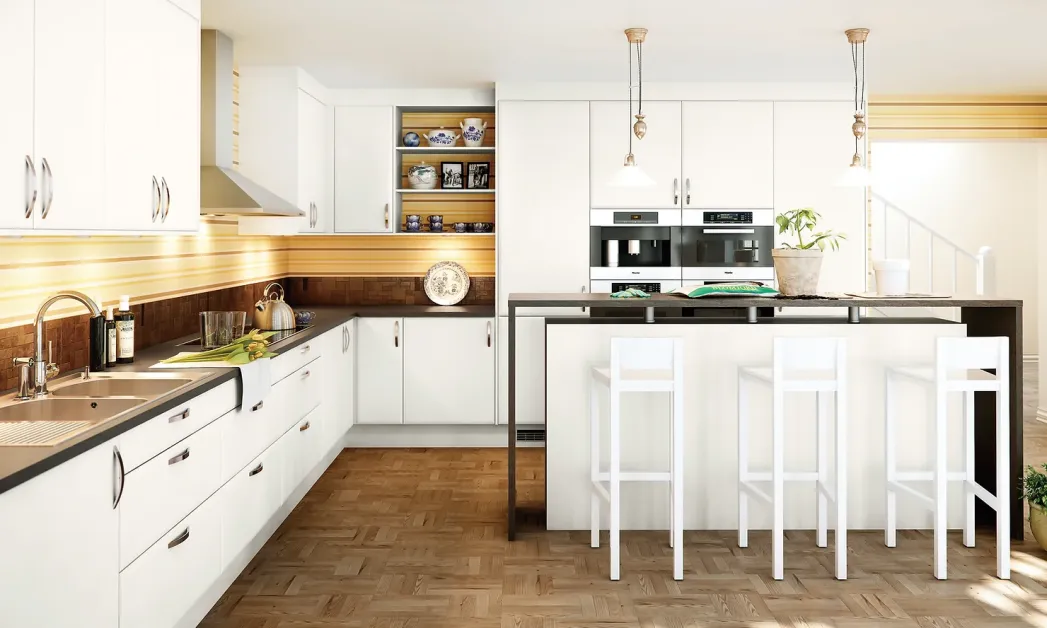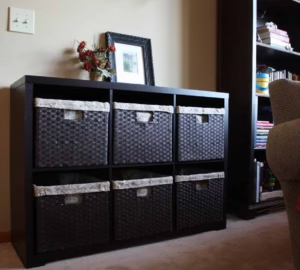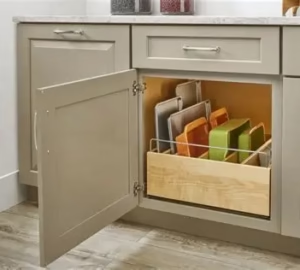The kitchen is the heart of many Kenyan homes, a place where meals are prepared, traditions are shared, and family memories are made. Investing in kitchen appliances is a significant decision that impacts your daily life, your budget, and even your energy bills. With a wide array of options available in the Kenyan market, from local brands like Ramtons and Von to international giants like LG and Samsung, knowing what to look for can be overwhelming.
At Retail Place, we believe in empowering Kenyan consumers with informed choices. This comprehensive guide will walk you through the essential considerations when buying kitchen appliances, ensuring you make a smart, long-lasting investment for your home.
Budget: Set Your Realistic Spending Limits
Before you even start Browse, define how much you’re willing to spend. Kitchen appliances range from affordable basics to high-end smart devices.
- Small Appliances (Kettles, Blenders, Toasters): These can range from KSh 1,000 to KSh 10,000+.
- Mid-Range Appliances (Microwaves, Cookers): Expect to pay KSh 10,000 to KSh 50,000 for standard models.
- Large Appliances (Refrigerators, Dishwashers, Ovens): These are significant investments, often ranging from KSh 30,000 to KSh 150,000 or more, depending on size, features, and brand.
Remember that cheaper isn’t always better in the long run if it means frequent breakdowns or high energy consumption. Factor in potential delivery and installation costs, especially for larger items.
Size and Space: Measure Twice, Buy Once
This is crucial, especially in urban Kenyan homes where kitchen space can be limited.
- Measure Your Space: Before you buy a new refrigerator or cooker, measure the exact dimensions of the designated space – width, depth, and height. Don’t forget to account for door swings, drawer clearance, and ventilation.
- Consider Door Access: Will the appliance fit through your doorways and hallways? This is often overlooked!
- Compact Appliances: If you have a small kitchen, look for compact refrigerators, slimline dishwashers (e.g., 45cm wide), or smaller microwave ovens (20-23 litres are common). Brands like Bosch offer ranges designed for small kitchens.
- Built-in vs. Freestanding: Decide if you prefer appliances that integrate seamlessly into your cabinetry (built-in) or stand alone (freestanding). Built-in options can save space and offer a sleek look but require professional installation.
Functionality and Lifestyle: What Do You Really Need?
Think about your cooking habits and household needs.
- Cooking Habits: Do you cook daily for a large family or occasionally for one or two? Do you bake frequently? This will dictate the size of your cooker/oven and whether you need a powerful blender or a food processor.
- Family Size: A large family will need a bigger refrigerator and a higher-capacity washing machine. A single person might be fine with a mini-fridge and a smaller microwave.
- Essential vs. Nice-to-Have: Differentiate between appliances you truly need (e.g., a cooker, a fridge) and those that are convenient but not essential (e.g., a bread maker, a stand mixer).
- Multi-functional Appliances: Look for items that do more than one job, like a microwave with a grill function, or a blender that can also grind spices.
Also Read:
- Essential Kitchen Appliances for Large Families in Kenya
- The Best Appliances for Small Kitchens in Nairobi
- Essential Kitchen Gadgets for Every Kenyan Home
Energy Efficiency: Save KES on Your Electricity Bill
Electricity costs are a significant factor in Kenya. Choosing energy-efficient appliances can lead to substantial long-term savings.
- EPRA Labels: In Kenya, the Energy & Petroleum Regulatory Authority (EPRA) mandates energy efficiency labels for certain appliances. Look for the 5-star labelling scheme, where 5 stars indicate the highest energy performance.
- Inverter Technology: For refrigerators and washing machines, look for inverter technology. These adjust power consumption based on usage, leading to significant energy savings. Brands like LG and Samsung often feature this.
- Power Consumption (Wattage): For smaller appliances like kettles and microwaves, check the wattage. Higher wattage can mean faster operation but also higher immediate power draw.
Durability and Build Quality: Invest for the Long Haul
Appliances are an investment, and you want them to last.
- Materials: Stainless steel is durable and easy to clean, but can be prone to fingerprints. High-quality plastics are also acceptable.
- Construction: Check hinges, knobs, and handles. Do they feel sturdy? Are drawers smooth?
- Reputation of Brands: Research reputable brands known for durability in Kenya. Local brands like Ramtons and Von are popular and often have good support networks. International brands like LG, Samsung, Philips, Mika, and Hisense are also widely available.
Warranty and After-Sales Service: Crucial for Peace of Mind
Breakdowns happen. Good warranty and reliable service are paramount.
- Warranty Period: Most appliances in Kenya come with a minimum 1-year warranty. Some premium brands offer extended warranties (e.g., 5 or 10 years on compressors or motors). Understand what the warranty covers.
- Service Centres: Before buying, check if the brand has readily available service centers in Nairobi or your region. What is their reputation for repairs? Hotpoint Appliances and Bestcare Appliance Repair are examples of companies offering repair services across Nairobi.
- Spare Parts Availability: Can you easily get spare parts if something breaks down after the warranty expires?
- Installation Support: For large appliances, confirm if installation is included or if the retailer offers reliable third-party installation services.
Also Read: Your Guide to Understanding Product Warranties in Kenya
Safety Features: Protect Your Home and Family
Prioritize appliances with important safety features.
- Automatic Shut-off: Kettles, irons, and some cookers have this feature.
- Child Locks: Essential for ovens, washing machines, and some refrigerators if you have young children.
- Overload Protection: For blenders and food processors.
- Surge Protection: Consider using surge protectors (like Ramtons or Mika multi-guards) for your appliances, given power fluctuations in some areas.
Smart Features and Technology: Convenience in the Digital Age
While not essential, smart features can add convenience.
- Smart Refrigerators: Some high-end models offer touchscreens, internal cameras, and connectivity to manage groceries or play music.
- Smart Cookers/Ovens: Can be preheated or monitored remotely via an app.
- Connectivity: Consider if you genuinely need these features and if they justify the higher price tag. Are they compatible with your existing smart home ecosystem, if any?
Making an informed decision when buying kitchen appliances in Kenya can save you money, time, and frustration in the long run. By considering your budget, space, lifestyle, energy efficiency, durability, and after-sales support, you’ll equip your kitchen with reliable tools that enhance your culinary experience and contribute to a more efficient and joyful home.









